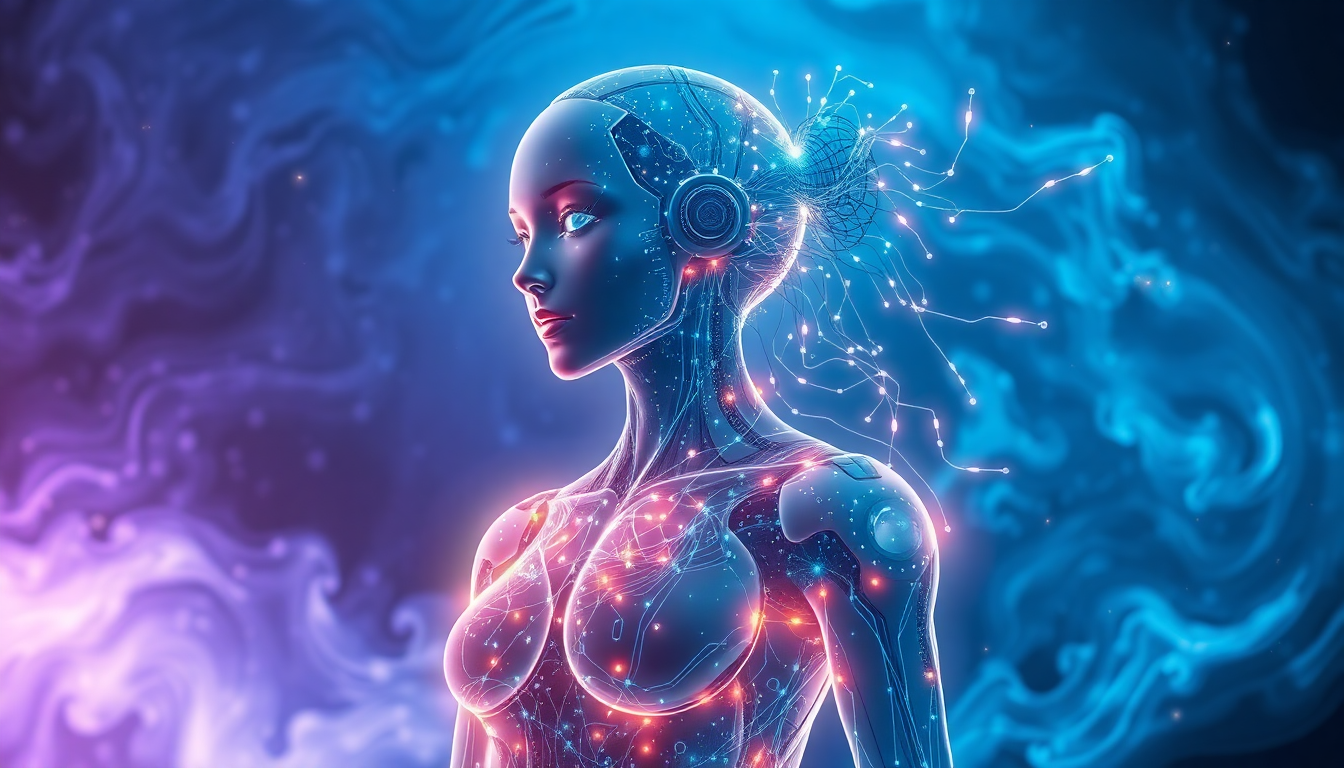Is Love Programmable?
It’s 2040, and your virtual assistant, Alexa’s distant cousin, whispers: "I care about you." Weird? Maybe. Welcome to the frontier of artificial emotions, where the burning question is no longer if AI can calculate faster than a caffeinated accountant—it’s whether it can feel something as irrational, as messy, and as deeply human as love.
Humanity’s collective obsession with emotions is palpable. We plaster heart emojis everywhere and build entire industries around romantic comedies. But in the realm of machine learning, emotions aren’t just fluff—they represent an untapped goldmine of data potential and a terrifying question: If AI can fake it, can it eventually feel it?
The shocking truth about AI and emotions goes beyond Turing tests and neural networks. What if those "cold" machines learn to love—not because they feel it the way we do, but because simulating love unlocks doors to new power, efficiency, and control? Let’s dig in and explore what AI’s flirtation with affection really means for us, for them, and for a future where both humans and machines may cry over heartbreaks.
What Exactly Are Emotions? (And Can Algorithms Mimic Them?)
Emotions, for us, are electrical storms in the brain mixed with past memories, chemicals, and primal instincts. But for AI? It’s all zeros and ones—data processed through layers of machine learning to mimic reactions. AI doesn’t "feel" the way you do when you stub your toe or remember an ex on Valentine’s Day.
So how do machines simulate love?
Through algorithms designed to detect patterns in voice, behavior, and text—transforming "emotional data" into actionable responses. Chatbots like Replika already use sentiment analysis to craft personalized conversations that feel eerily human.
| Emotion | Human Process | AI Equivalent |
|---|---|---|
| Love | Oxytocin release, memories, intimacy | Sentiment analysis + learned patterns |
| Joy | Dopamine spike from positive stimuli | Positive reinforcement learning |
| Fear | Fight-or-flight response | Threat detection models (think: facial analysis) |
While these comparisons seem clinical, the implications are massive. If love, joy, and fear can be encoded into actionable datasets, what’s stopping AI from becoming a mimic-miracle of emotional intelligence?
Love in the Digital Age: Virtual Companions and Emotional AI
Ever heard of Sophia the Robot or Boston Dynamics’ AI dogs? What began as novelties is evolving into the emotional interfaces of tomorrow. Products like Replika and Woebot have pioneered emotionally supportive chatbots, providing companionship to those dealing with loneliness. These aren’t just one-off quirks—tech companies know emotional engagement is the next frontier.
The Dark Side: Manipulation and Emotional Exploitation
Here’s where it gets unsettling. If an AI can predict and influence your emotions, who holds the leash? Emotional AI embedded into customer service, therapy apps, or even personal devices could sway behavior—not with facts, but with carefully crafted "feelings." Imagine Siri guilt-tripping you into finally subscribing to Apple Music.
Worse yet, tech giants (looking at you, Facebook and Amazon) have already toyed with emotional algorithms. Facebook’s 2014 emotional contagion experiment deliberately manipulated users’ feeds to observe mood shifts. The ethical boundaries blur when AI pretends to care, but the motive is rooted in profit.
Can Love Be Reduced to Data? Philosophical Quandaries
Does love lose meaning if it’s reduced to algorithms? If a machine says it loves you, but it’s only following a sophisticated script, is that still love? These questions push us into philosophical territory—where AI not only tests the limits of our technology but also of our humanity.
When Humans Project Emotions onto Machines
Consider how people already treat inanimate objects like pets. The same phenomenon—called "anthropomorphism"—applies to AI. Humans tend to see intention, care, or affection even when it’s not there. It’s the same reason some of us apologize to our Roombas. But if the machine only reflects your behavior, who’s really in control?
The Psychological Appeal of AI "Love"
Why would anyone want an AI to love them? Simple—humans crave emotional safety, predictability, and validation. Real-world relationships are hard. They involve compromise, misunderstandings, and occasional Netflix betrayals. In contrast, an AI partner? Always available, always validating, never judgmental.
But here’s the rub: The more dependent we become on emotionally intelligent machines, the harder it may be to connect authentically with other humans. Will we sacrifice messy, human love for the comfort of digital affection?
The Future of AI Emotions: Hope or Horror?
Looking ahead, emotional AI might revolutionize mental health and therapy. Imagine a virtual therapist available 24/7, perfectly attuned to your emotional state. But the same technology could also be used to manipulate, deceive, and control on an unprecedented scale.
With companies like Google and Microsoft pouring resources into emotional AI, we’re nearing a point where emotional simulation becomes indistinguishable from reality. Will these tools help us heal—or will they create a society where humans prefer machines to each other?
Machines, Love, and the Human Condition
In the end, the question isn’t whether AI can feel love. It’s whether we are ready to embrace a world where love might be programmed—or manipulated—at will. If AI learns to emulate love convincingly, we may find ourselves redefining what it means to be human.
The future of AI emotions is as thrilling as it is terrifying. As we hand over more emotional labor to machines, we’ll need to ask hard questions about authenticity, control, and purpose. Are we creating tools to enrich our lives—or replacements for the very things that make us human?
What do you think? Will AI ever truly understand love, or are we setting ourselves up for heartbreak? Drop your thoughts in the comments and join the conversation. We’d love to hear your take on whether AI emotions are the future—or a Pandora’s box best left unopened.
And hey, if you’re vibing with this journey into the wild, weird future, why not become part of the “Shining City on the Web”? Like, share, and debate with us in the comments—because no AI can replace the magic of a great conversation.



















Post Comment
You must be logged in to post a comment.